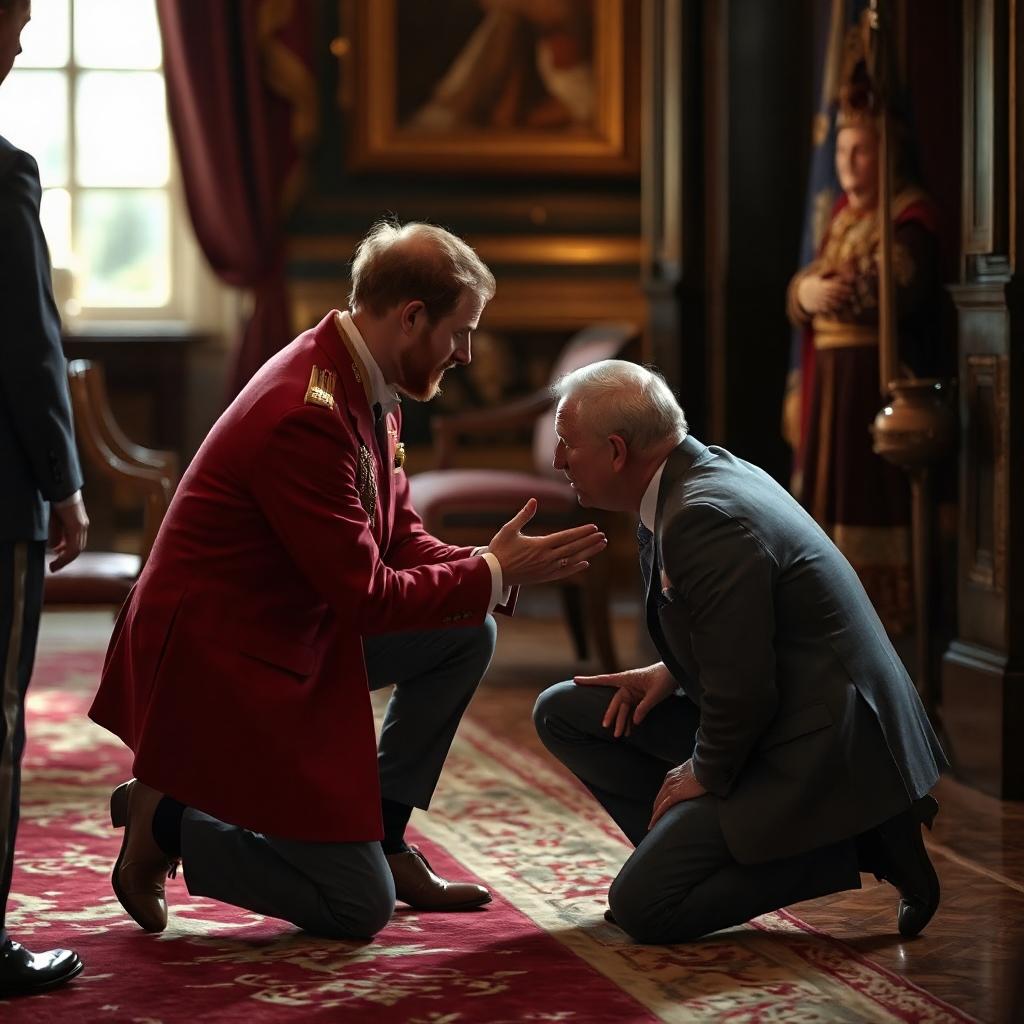In a stunning turn of events, Prince Harry made a highly publicized return to Buckingham Palace last week, drawing widespread media attention and sparking conversations around royal family dynamics. The visit was marked by an emotional moment that many observers had not anticipated: King Charles III knelt before his son, expressing heartfelt remorse for past grievances.

The backdrop of Harry’s return was significant, as it coincided with a royal family gathering to commemorate the late Queen Elizabeth II’s anniversary. This occasion, steeped in tradition and remembrance, served as a poignant setting for a personal reconciliation. Harry, who had been living in the United States for the past few years, had distanced himself from royal duties and often expressed his struggles with the pressures of royal life.
Upon his arrival at the palace, Harry was met with a mixture of curiosity and concern from onlookers and palace staff alike. The atmosphere was tense, yet hopeful. Many had speculated about the potential for reconciliation between Harry and his family, especially in light of the revelations made in his memoir, “Spare,” which detailed his experiences and feelings of alienation within the royal fold.
The climax of the day came when King Charles approached Harry in the ornate garden of Buckingham Palace. In a moment that seemed both spontaneous and deeply intentional, the King knelt before his son. “I’m sorry, my son. I was wrong,” he said, his voice trembling with emotion. This unexpected gesture caught everyone off guard, marking a stark contrast to the often stoic and formal demeanor associated with royal protocol.
Observers noted that this act of humility from King Charles represented a significant shift in the royal family’s approach to personal relationships. It acknowledged the complex emotions and experiences that Harry had articulated in public. The King’s apology resonated not only with Harry but also with the broader public, who have been captivated by the family’s narrative of conflict and reconciliation.
Harry’s response was not immediately clear, as the moment unfolded in a flurry of emotions. Sources close to him later revealed that he felt a mix of surprise and relief at his father’s vulnerability. The public has often criticized the royal family for their inability to express emotions openly, making this moment even more remarkable.
In the days following this encounter, there have been discussions among royal watchers about the potential implications for the future of the monarchy. Some speculate that this gesture might pave the way for a more open dialogue between Harry and the rest of the royal family, possibly leading to a restoration of their relationships. Others remain skeptical, pointing to the deep-rooted issues that have caused rifts in the past.
As the media continues to analyze this extraordinary event, many are left pondering the broader themes of forgiveness and understanding within families. The world watches closely, hoping that this moment marks the beginning of a new chapter for the royal family—a chapter characterized by healing rather than division.
Prince Harry’s return to Buckingham Palace, coupled with King Charles’s heartfelt apology, serves as a reminder of the complexities of familial relationships, particularly under the scrutiny of public life. Whether this moment will lead to lasting reconciliation remains to be seen, but it has certainly reignited interest in the evolving story of the British royal family.

